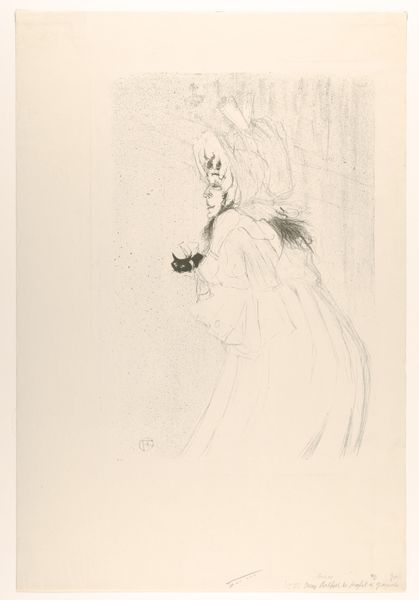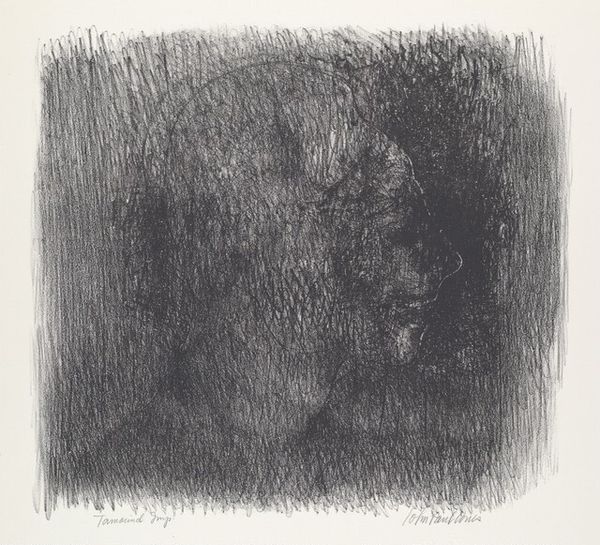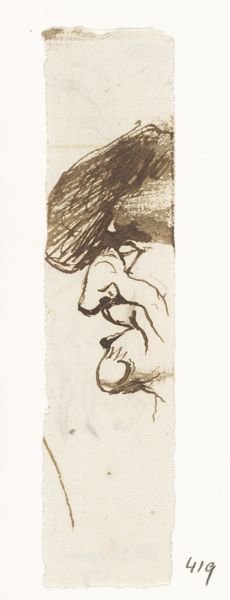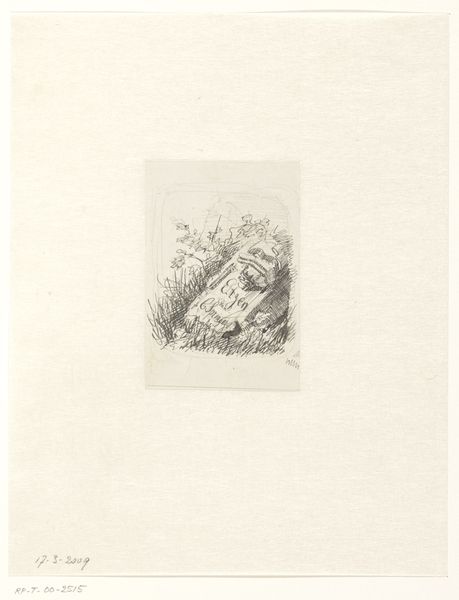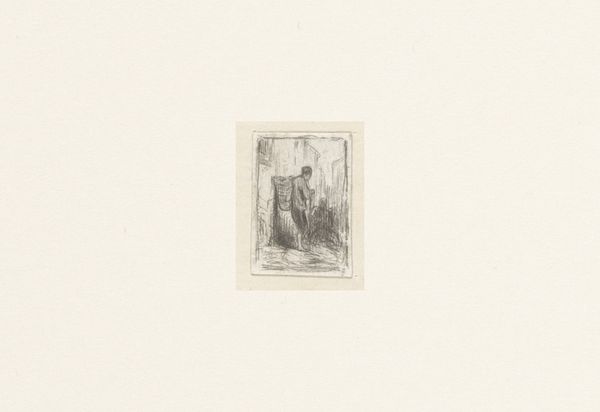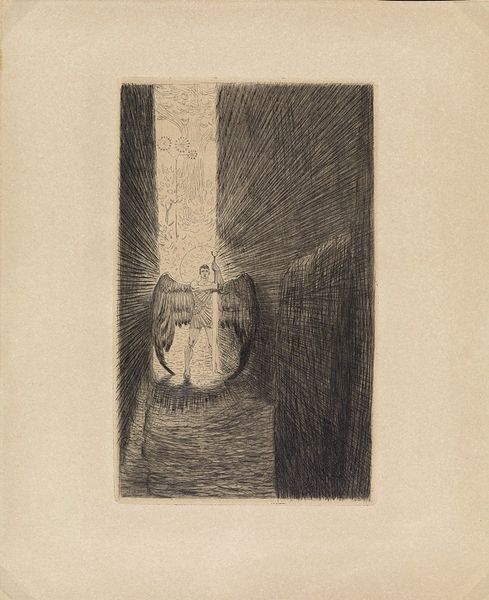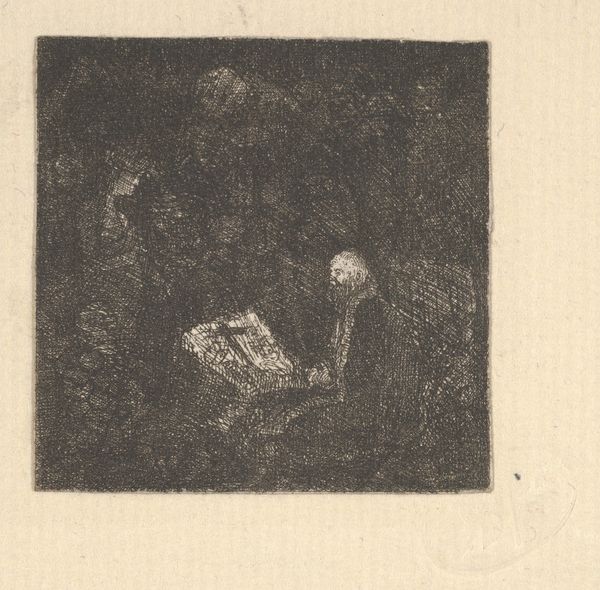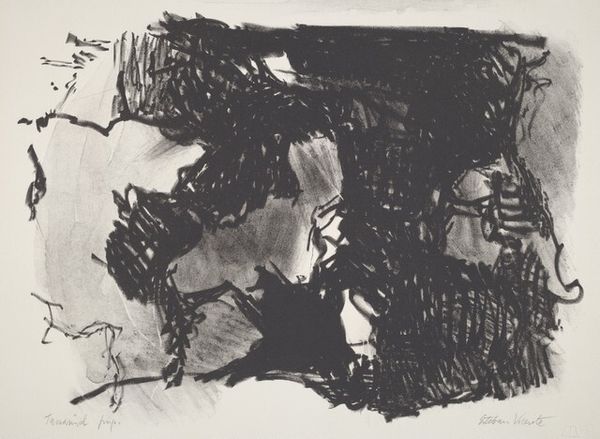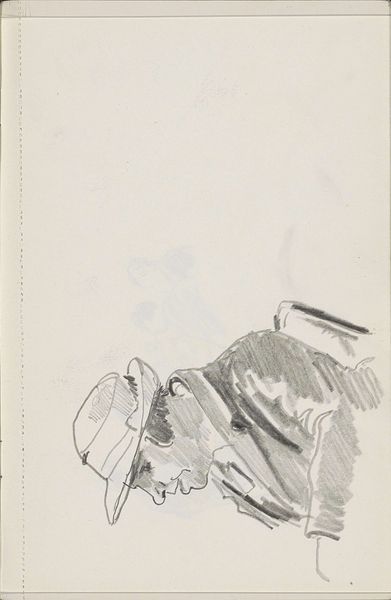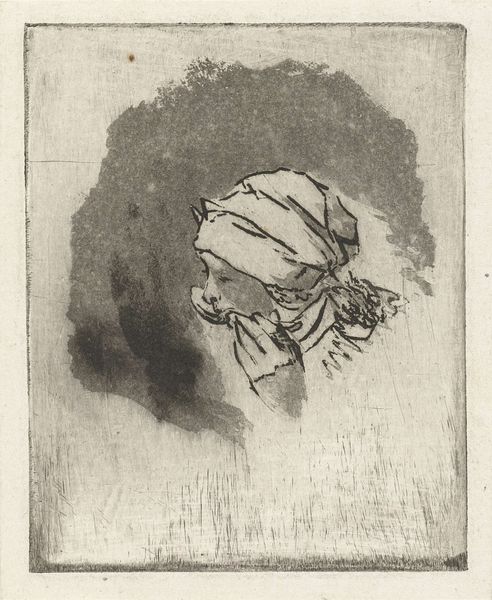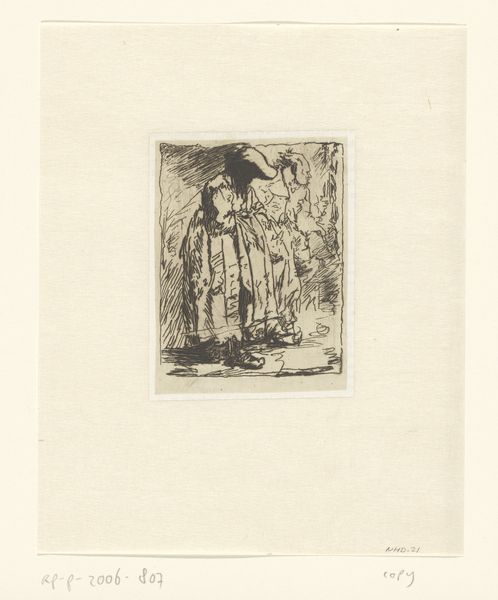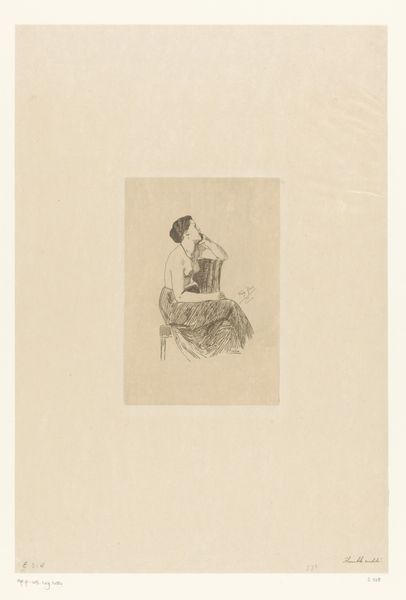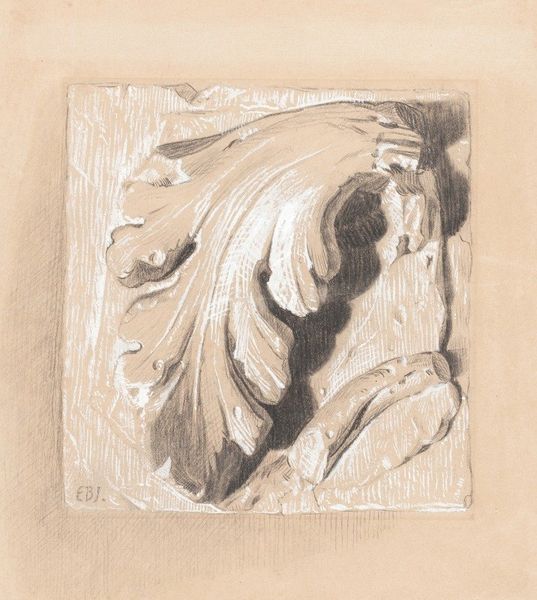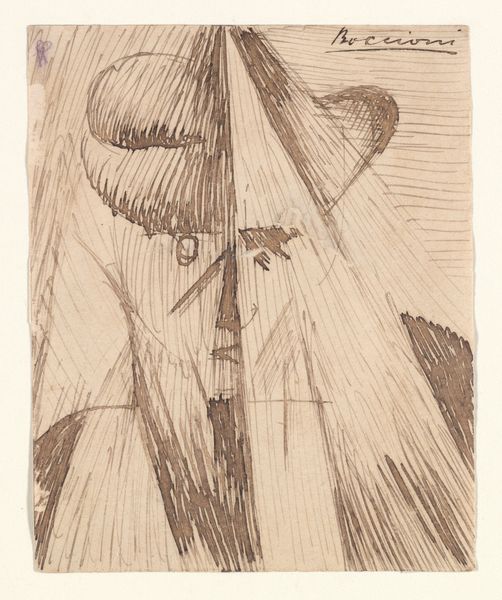
drawing, pencil
#
portrait
#
drawing
#
pencil sketch
#
pencil
#
realism
Dimensions: height 60 mm, width 42 mm
Copyright: Rijks Museum: Open Domain
Georgius van Os created this subtle pencil drawing called "Study of a Woman, Seen from the Back," sometime in the early 19th century. The woman's averted gaze is central; the symbolism of turning away appears throughout history. Consider ancient Greek sculptures where averted faces often signify mourning or introspection. The hidden face invites us to contemplate interiority, a motif that recurs across epochs. In the Renaissance, we see it in depictions of contemplative saints, while Romantic painters used it to suggest the sublime indifference of nature. The act of turning away may stem from a collective unease, a psychological defense against the overwhelming nature of existence. The averted gaze in van Os's work thus becomes a powerful emotional cipher, resonating with our shared human experiences of loss, reflection, and the mysteries that lie beyond our immediate perception. This simple, yet profound symbol reveals how artistic gestures transcend time, bearing witness to the enduring currents of human emotion.
Comments
No comments
Be the first to comment and join the conversation on the ultimate creative platform.
